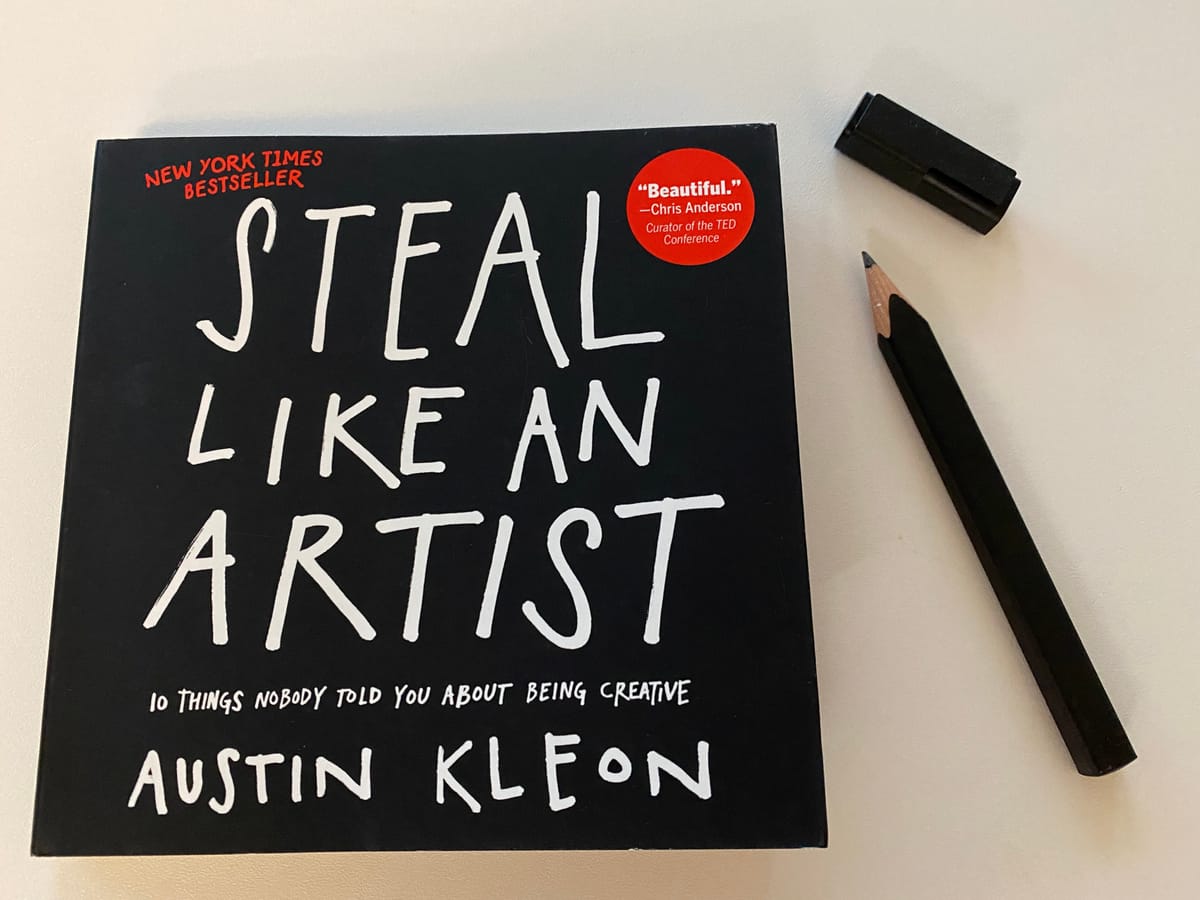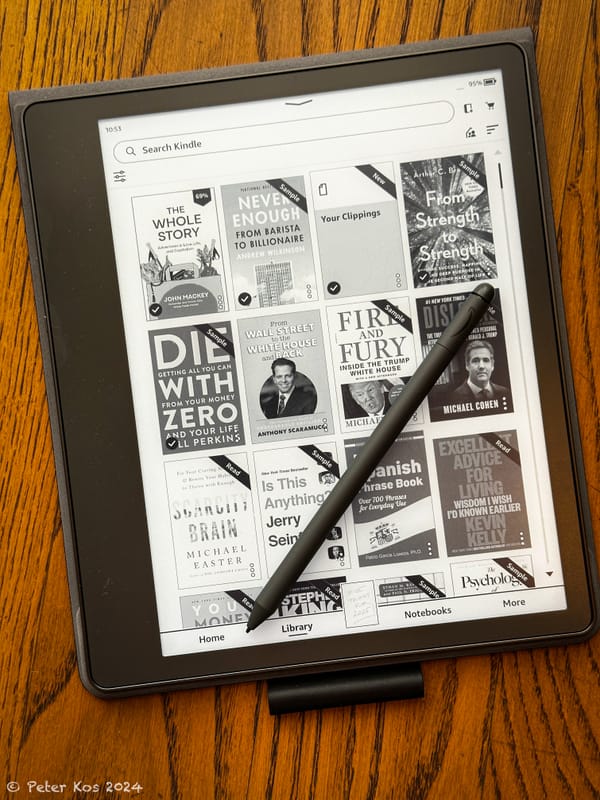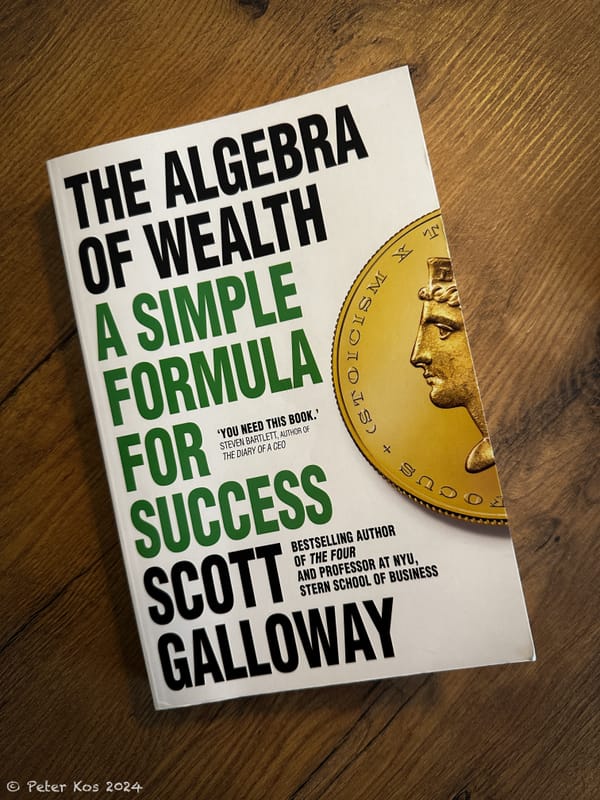Steal Like an Artist by Austin Kleon

I enjoyed reading and scribbling into Austin Kleon’s Steal Like An Artist. I ordered this one via Amazon for my wife and then stole it from her (lesson learned).

It’s a one-afternoon read, and it’s inspiring. I was reading it the way I think it’s meant to be read — with a pencil. Underlines, notes, scribbles, doodles. It was my first analog book after a long time.
I’m a kindle guy, as it’s the most portable way to carry all books of parallel reader that I am. But I’m a change junkie, so I decided to order some physical books this time. And yes, I was excited as the package arrived. It’s an entirely different experience than the “download completed” message on kindle. It’s tangible. There is a socially distant human touch involved. A Hello, a Thank You, and Have a nice day!.
So it felt natural to have this whole physical reading experience using a pencil. And it was satisfying. I’m happy that I also ordered The Steal Like An Artist Journal with it — or I’d be ordering one right now.
Here are some book notes from Steal Like an Artist by Austin Kleon
- Steal like an artist. (Snatched the book from my wife).
- New ideas are just mashups of multiple old ideas.
- GIGO (Garbage In Garbage Out). I couldn’t agree more. If we watch a lot of crap on TV, consume shit posts on social media, and get into stupid Twitter fights — let’s not expect there’s going to be good output.
- Hoarder vs. collector: artists collect selectively, only what they really love. Your income is probably the average of your five closest friends’ income. (*I know you’re calculating now!)
Your job is to collect good ideas. - Pursue your role models/thinkers. Study everything about them. Find three people they loved, and find out everything about them. (That’s how Steve Jobs led me to Bob Dylan and Joan Baez!)
- Hang pictures of your favorite artists.
(My favorite Steve Jobs’ portrait is Diana Walker’s 1982 shot of Steve in his empty living room. Seated on the floor, in a lotus pose, reading, and enjoying a hot beverage. That’s my desktop wallpaper). - Dead masters can’t refuse your apprenticeship. You can learn whatever you want from them.
- Be curious about the world in which you live. Google EVERYTHING.
- Always be reading. —Probably my favorite quote from the book.
- Carry a notebook and a pen with you all the time. —I’ll try; my iPhone is always there to collect stuff in my Evernote repository.
- Copying is about reverse-engineering.
- Copying from one author is plagiarism; copying from many is research.
- You don’t want to look like your heroes — you want to see like your heroes. Internalize their way of looking at the world.
- Write the book you want to read.
- All fiction is fan fiction.
- Do the work you want to see done.
- Practice productive procrastination.
- If you’re out of ideas, wash the dishes.
- What unifies your work is the fact that you made it. One day, you’ll look back and it will all make sense.
- Wonder at something. Invite others to wonder with you.
- Build your own world.
- All you need is a little space and a little time — a place to work, and some time to do it; a little self-imposed solitude and temporary captivity.
- .. leave home. You can always come back, but you have to leave at least once.
- If you’re the most talented/smartest person in the room, you need to find another room.
- Keep your day job. Freedom from financial stress also means freedom in your art.
- Keep a logbook.
- Limitations mean freedom.
- Creativity is the things we choose to leave out.





